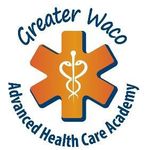SECONDARY SCHOOL INFORMATION GUIDE 2019-2020 - WACO INDEPENDENT SCHOOL DISTRICT - Waco ISD
←
→
Page content transcription
If your browser does not render page correctly, please read the page content below
Waco ISD
2019-2020
The Purpose of the Secondary School
Information Guide
The Secondary School Information Guide contains important information for students on how they can be successful in middle
and high school. The guide highlights WISD policies, rules and regulations that apply to secondary school students, and it
provides detailed information about the courses offered. Most importantly, the guide offers the information needed to plan the
courses taken to graduate from high school and to be accepted and successful at the college chosen to pursue the desired career.
The Guide has six sections that include the following ideas:
• General information for all secondary students and parents Waco ISD Mission Statement:
• Middle school information and course descriptions
• High school-specific information Waco ISD will ensure innovation and
• Graduation program options excellence in education to prepare all
• High school course descriptions learners for productive engagement in
• Career and Technical Education academies a global society.
This guide can be used in several ways. First, identify topics that of interest from the Table of Contents and go directly to them.
Second, read the general information section completely as well as the sections regarding middle school or high school, as
applicable. Third, refer to the descriptions of the selected courses to be scheduled for the next academic year.
Look ahead at the classes that are necessary to meet graduation requirements. Many of those classes have prerequisite courses
that must be taken during the freshman, sophomore or junior year. If the prerequisites have not been met by the senior year, the
higher-level courses will not be available, which can cause a lack of credits and delayed graduation, so plan ahead! Counselors
and teachers can help in selecting the right classes to preparation for college and a career of choice.
Secondary School Information Guide
2019-2020
For information or complaints regarding compliance with the nondiscrimination requirements of Title IX, contact Waco ISD Director of Athletics, at 254-745-2250. For
information or complaints regarding compliance with the nondiscrimination requirements of Section 504 or the Rehabilitation Act of 1973, as amended, contact Waco ISD
Director of Special Education at 254-755-9473 or Waco ISD Assistant Superintendent of Human Resources at 254-755-9473 at P.O. Box 27, Waco, TX, 76703.
Page | 2Table of Contents
SECTION I: General Information for Secondary School Students & Parents .......................................................................... 6
Succeeding in Secondary School .............................................................................................................................................. 7
Planning for Academic and Career Success .......................................................................................................................... 7
Helping Students at Home ..................................................................................................................................................... 7
Understanding the High School Transcript ............................................................................................................................ 7
Participating in Co-curricular and Extracurricular University Interscholastic League (UIL) Activities ............................... 7
Preparing to Participate in Collegiate Athletics (NCAA) ...................................................................................................... 7
Losing Eligibility for Extracurricular Activities .................................................................................................................... 7
Exhibiting Personal Responsibility........................................................................................................................................... 7
Monitoring Success .................................................................................................................................................................. 7
Defining the Grading System ................................................................................................................................................ 7
Understanding Letter Grades ................................................................................................................................................. 8
Interpreting Report Cards and Progress Reports .................................................................................................................... 8
Achieving Honor Roll Status ................................................................................................................................................. 8
Completing Standardized Testing .......................................................................................................................................... 8
Meeting Student Success Initiative Requirements in Grades 5 & 8....................................................................................... 9
Determining Grade Level, Promotion, and Graduation Eligibility .......................................................................................... 9
Earning Middle School Grade Promotion .............................................................................................................................. 9
Establishing High School Grade-Level Classification ........................................................................................................... 9
Participating in Graduation Ceremonies ................................................................................................................................ 9
Requesting Early Graduation ................................................................................................................................................. 9
Transferring Courses and Grades in to and out of Waco ISD .................................................................................................. 9
Classifying Students Entering from Outside of the District (Grade Level Placement) .......................................................... 9
Transferring Courses and Grades........................................................................................................................................... 9
Transferring Credit from Non-Accredited Institutions and Home School Programs ............................................................. 9
Using ESSA Options and Diversity Choice to Attend Other Schools ................................................................................... 9
Changing Courses .................................................................................................................................................................. 10
Requesting a Course Change ............................................................................................................................................... 10
Correcting Course Errors ..................................................................................................................................................... 10
Pursuing Advanced Courses and Programs ........................................................................................................................... 10
Choosing Pre-Advanced Placement (Pre-AP) Courses........................................................................................................ 10
Selecting Advanced Placement (AP) Courses ..................................................................................................................... 10
Earning Weighted Grade Points for Advanced Courses ...................................................................................................... 10
Taking Career & Technical Education College Articulated Courses .................................................................................. 10
Participating in the ACCELERATE Early Degree Program ............................................................................................... 10
Enrolling in ATLAS Academy ............................................................................................................................................ 10
Choosing Special Schools and Programs ............................................................................................................................... 10
Attending A. J. Moore Academies at University High & Lake Air Montessori Magnet ..................................................... 10
Exploring the Greater Waco Advanced Manufacturing Academy (GWAMA) ................................................................... 11
Choosing the Greater Waco Advanced Health Care Academy (GWAHCA) ...................................................................... 11
Utilizing Brazos Credit Recovery Center ............................................................................................................................ 11
Requiring Homebound Program Services ........................................................................................................................... 11
Needing Pregnancy Related Services (PRS) ........................................................................................................................ 11
Utilizing Services for Students with Special Needs ................................................................................................................ 11
Serving English Language Learners (ELs)/Limited English Proficient (LEP)/English as a Second Language (ESL) ....... 11
Regarding LEP/EL Students Participating in STAAR/EOC.................................................................................................. 11
Assessing LEP/EL Students with TELPAS ......................................................................................................................... 11
Assisting English Language Learners Served by Special Education ................................................................................... 11
Educating Students with Disabilities/Section 504 ............................................................................................................... 12
Helping Students with Dyslexia & Related Disorders ......................................................................................................... 12
Utilizing Special Education Services ................................................................................................................................... 12
SECTION II: Middle School Information and Course Descriptions ........................................................................................ 13
Understanding Middle School Education’s Mission: Our Loftiest Aspiration ....................................................................... 14
Implementing Middle School Education Strategies ................................................................................................................ 14
Examining the Middle School Curriculum ............................................................................................................................. 14
Preparing Students’ Schedules ................................................................................................................................................ 14
Achieving Membership in National Junior Honor Society ..................................................................................................... 14
Middle School Course Descriptions ....................................................................................................................................... 16
Literacy/Literacy for Non-English Speakers (ESL) ............................................................................................................ 16
Page | 3Science ................................................................................................................................................................................ 16
Mathematics ........................................................................................................................................................................ 16
Social Studies ...................................................................................................................................................................... 16
Physical Education and Athletics ........................................................................................................................................ 17
Health .................................................................................................................................................................................. 17
Fine Arts – Art, Band .......................................................................................................................................................... 17
Fine Arts – Choir, Orchestra, Theater Arts.......................................................................................................................... 18
Elective Courses – Touch System Data, Speech, Technology, Foreign Language ............................................................. 18
Elective Courses – College & Career Readiness and ATLAS............................................................................................. 19
SECTION III: High School Information and Graduation Requirements................................................................................ 23
Defining Key High School Information and Graduation Requirements.................................................................................... 24
Selecting College and Career Programs of Study ................................................................................................................... 24
Differentiating Between Graduation Programs ...................................................................................................................... 24
Understanding Graduation Requirements for Students Receiving Special Education Services ............................................. 24
Explaining Senate Bill 673’s Directives Impact on Students Receiving Special Education Services .................................... 25
Defining Required Tests for Graduates .................................................................................................................................. 25
Completing Semester and Final Examinations ....................................................................................................................... 25
Exempting Criteria for Final Examinations ............................................................................................................................ 25
Discovering Credit by Examination (CBE) General Guidelines............................................................................................. 25
Utilizing Dual Credit Opportunities........................................................................................................................................ 26
Exploring Course Weighting and Grade Point Averages.......................................................................................................... 26
Calculating Grade Point Average ........................................................................................................................................... 26
Understanding Grade Point Average Exceptions ................................................................................................................... 26
Defining Rank-in-Class .......................................................................................................................................................... 26
Receiving Academic Recognition .............................................................................................................................................. 26
Becoming an Academic Achiever .......................................................................................................................................... 26
Gaining National Honor Society Membership........................................................................................................................ 26
Receiving Honors Recognition at Graduation ........................................................................................................................ 27
Determining Graduation Honors Eligibility ........................................................................................................................... 27
Breaking Ties ......................................................................................................................................................................... 27
Exploring Higher Education Information ................................................................................................................................. 27
Explaining the Top 10% Ruling ............................................................................................................................................. 27
Admitting Top 6% to University of Texas at Austin for 2019 ............................................................................................... 27
Utilizing Texas Tuition and Fee Exemption for Recipients of Temporary Assistance for Needy Families (TANF) ............. 27
Qualifying for the Toward Excellence, Access and Success (TEXAS) Grant Program ......................................................... 27
Receiving Non-citizen In-state Tuition at Public Post-Secondary Institutions in Texas......................................................... 28
Preparing for College Testing ................................................................................................................................................... 28
Taking Pre-college Entrance Tests ......................................................................................................................................... 28
Understanding Differences Between College Admissions Tests ............................................................................................ 28
Completing SAT Subject Tests .............................................................................................................................................. 28
Utilizing Advanced Placement Examinations for Placement and Credit................................................................................ 28
Assisting with College Admissions ............................................................................................................................................ 28
Taking and Passing the TSIA (Texas Success Initiative Assessments) .................................................................................. 28
SECTION IV: High School Course Description ......................................................................................................................... 29
English ................................................................................................................................................................................... 30
Mathematics........................................................................................................................................................................... 32
Social Studies ........................................................................................................................................................................ 34
Science ................................................................................................................................................................................... 36
Mock Trial and Public Speaking ........................................................................................................................................... 38
World Languages ................................................................................................................................................................... 39
Fine Arts ................................................................................................................................................................................ 41
Technology Applications ....................................................................................................................................................... 50
Junior Reserve Officers Training (JROTC) ........................................................................................................................... 51
Athletics/PE ........................................................................................................................................................................... 52
SECTION V: High School Career and Technical Education (CTE) Course Descriptions ..................................................... 54
Exploring Career and Technical Education (CTE) Cluster Areas .......................................................................................... 54
College Readiness/College Preparation .................................................................................................................................. 56
Agriculture, Food, and Natural Resources .............................................................................................................................. 57
Arts, Audio/Visual Technology and Communications Information Technology ................................................................... 58
Business Management and Administration, Finance and Marketing ...................................................................................... 60
Culinary Arts .......................................................................................................................................................................... 62
Page | 4Education and Training........................................................................................................................................................... 63
Law and Public Service .......................................................................................................................................................... 64
Science, Technology, Engineering and Math ......................................................................................................................... 65
Transportation, Distribution, and Logistics ............................................................................................................................ 66
Greater Waco Advanced Manufacturing Academy Course Descriptions ............................................................................... 68
Greater Waco Advanced Health Care Academy Course Descriptions ................................................................................... 72
Appendices ..................................................................................................................................................................................... 74
A: Vital Information about Dual Credit Courses .................................................................................................................... 75
B: STAAR/EOC Reporting Categories .................................................................................................................................. 79
C: Recommended Course Sequences Leading to AP-level or Dual Credit Courses .............................................................. 80
D: Vital Information about Advanced Placement Courses ..................................................................................................... 81
E: Middle School Course Sequences ...................................................................................................................................... 84
F: Fine Arts Sequences for High School ................................................................................................................................ 85
G: House Bill 5 Foundation High School Program Requirements ......................................................................................... 87
H: House Bill 5 Endorsement Requirements .......................................................................................................................... 91
I: House Bill 5 Distinguished Level of Achievement and Performance Acknowledgements ............................................... 94
J. ACCELERATE Early Degree Program Pathways .............................................................................................................. 95
Helpful Contacts for Common Problems related to Secondary Education............................................................................. 100
Page | 5SECTION I: GENERAL INFORMATION FOR
SECONDARY SCHOOL STUDENTS AND PARENTS
WISD Disclaimer:
The contents of the Secondary School Information Guide are relevant to WISD Policy (Legal and Local), Regulation and Practice to date. For
current information regarding district policy please refer to the Waco Independent School District website at www.wacoisd.org or visit with a
school counselor.
Specific school-related questions should be directed to campus staff. When a parent or guardian has a question or concern, he or she should
contact the person who made the initial decision. After discussing the matter, if the concern continues, the principal should be contacted.
Succeeding in Secondary School Success in middle and high school requires planning and hard work. This
Page | 6section of the Secondary School Information Guide is intended to answer This document also notes scores students earn on various examinations taken
many of the questions students and their parents have about planning for in high school: End-of-Course STAAR assessments, ACT and SAT,
graduation as well as the rules and procedures schools in Waco ISD follow. Advanced Placement, and Texas Success Initiative Assessments (TSIA).
When a student leaves Waco ISD to attend school at another institution, this
Use this guide to help select middle and high school courses as well as to record will be required by the new institution upon enrollment. Transcript
choose endorsements. While several courses are required, many enjoyable entries may not be altered or removed, except to correct errors.
and enriching electives are available. Choose courses carefully, plan to work
hard, and get involved in extracurricular activities. Participating in Co-Curricular and Extracurricular University
Interscholastic League (UIL) Activities
Planning for Academic and Career Success Activities that support school-day coursework include language clubs,
Academic and career planning is an ongoing process for students in Waco journalism, debate, theatre arts, band, orchestra, choir, Academic Decathlon,
ISD. Counselors and other district-level personnel present guidance and mock trial, Skills USA, National History Day fair, and Academic UIL.
career-planning activities to students in grades 5-12: Students can support classroom learning in these activities while also earning
• In Grades 5 and 6, students focus on skills needed for success in school individual or group honors.
and the workplace.
• In Grade 7, students make the link between career interests and personal Student athletes can further their development by participating in
values. Students explore the transition to high school by looking at extracurricular University Interscholastic League (UIL) sports. Waco ISD
typical high school courses. high schools offer football, volleyball, cross-country, golf, tennis, basketball,
• In Grade 8, each student develops a 4-Year plan. The 4-Year Plan, baseball, softball, soccer, and track & field; middle schools offer football,
created by the student in conjunction with the counselor and parent(s), volleyball, basketball, soccer, and track & field. NOTE: Per UIL regulations,
notes career interests, postsecondary goals, and courses needed to meet sixth grade students are not eligible to participate in UIL activities.
high school graduation requirements. Students complete career interest (http://pol.tasb.org/Policy/Download/867?filename=FM%28LEGAL%29.pdf).
assessments as well as learn about careers and Career & Technical
Education academies offered at the high school level, and post- Preparing to Participate in Collegiate Athletics (NCAA)
secondary education opportunities to plan their high school courses. High school athletes must be aware of the National Collegiate Athletic
• In Grades 9-11, students complete and/or update the 4-Year academic Association (NCAA) academic guidelines and requirements throughout their
plan and receive advising on the course sequences for their chosen career high school careers if planning to participate in college sports. Beginning
paths. junior year, important information must be submitted to the NCAA Eligibility
• In Grade 11, students research colleges and universities based on the Center. Students must maintain a minimum core-course GPA of 2.3 and meet
results of their interest inventories and career searches. They also course progression requirements to compete in Division I and a minimum
investigate majors of study at the college level. core-course GPA of 2.2 for Division II.
• In Grade 12, students complete a resume for use either in the workplace
or for application to higher education institutions. They also receive For more information, visit the NCAA website at www.eligibilitycenter.org,
information about college planning, soft skills needed for entry into the or contact the high school’s or college’s team coach, a school counselor, or
workforce, and financial literacy. the high school registrar for specific information.
Helping Students at Home Losing Eligibility for Extracurricular Activities
Parents play influential roles in assisting with the planning, preparation and Any student with a failing six-week grade will be suspended from
development of a 4-year plan. Parents should help with the following tasks: competition. Some advanced courses are exempt from this rule. Refer to
• Review this guide and materials received from the school; discuss them WISD policy FM (local) at http://pol.tasb.org/Policy/Download/867?
with the student. filename=FM%28LOCAL%29.pdf for additional information.
• Learn graduation plan requirements and ensure the student meets them.
• Ensure students select courses that will meet their educational and career Exhibiting Personal Responsibility
goals. Waco ISD expects students to exhibit a high degree of self-discipline and to
• Help students explore colleges and careers of interest. contribute to an educational climate that allows each student to enjoy a
• Encourage students to take Advanced Placement and Dual Credit courses healthy, safe, and positive learning experience. When necessary, discipline is
to earn college credit while in high school. used to maintain order and promote appropriate behavior. A copy of the
WISD Student Code of Conduct is provided to each student. While the
Students involved in extra-curricular (after school) and co-curricular (after majority of the rules are standard across the district, each campus may
school but related to a course taken during the school day) activities are often establish additional rules and regulations under WISD guidelines. Please
more successful in school. Waco ISD offers clubs, teams, and other refer to the Student Code of Conduct, Student Handbook, or online policy for
opportunities for learning academic and social skills, making friends, and information on attendance and discipline. The Student Code of Conduct and
developing leadership skills. Encourage students to be involved in at least Student Handbook are available online in both English and Spanish.
one extra-curricular or co-curricular activity.
Monitoring Success
Understanding the High School Transcript
Defining the Grading System
The high school transcript is the official and permanent record of a student's
Student grades are based on a numerical scale of 0-100. A grade of 70 or
academic performance during high school and, in some cases, of high school
above is considered passing. Grading and reporting of student progress is
courses completed prior to high school (TEC §28.025(e)). This record will
intended to help increase each student’s achievement. An effective grading
note the level of rigor of the course taken, whether the course also earned
system allows educators to clearly communicate student progress toward pre-
college credit, a cumulative grade point average based on all grades received
defined curricular standards in a way that is equitable, accurate, and useful.
and their given weights, the student’s rank compared to all other students at
The full text of the WISD grading policy is available at each campus and on
the grade level, and the endorsement(s), distinctions, and performance
the District’s website.
acknowledgements earned by the student. Only final semester grades are
recorded on the transcript.
Policy and District expectations are summarized below:
• Principals, as the instructional leaders of the schools, have the ultimate
responsibility of enforcing fair and consistent grading procedures that
coincide with District policies/regulations.
• Guidelines allow a student to be provided re-do and re-assessment
opportunities for a reasonable opportunity to recover a course grade after
failing an assignment or assessment.
Page | 7The middle school report card conveys a six week’s numerical average for
• Teachers will accept and award at least partial credit for late work turned each course. At the end of the first semester and of the year, the six-weeks’
in within three consecutive school days of the due date. Because of grades are averaged to determine an overall course average for the semester.
differences in short-term assignments, teachers can provide students with
an alternative assignment that will be due within the same time frame as The high school report card includes the numerical average for each six
the original assignment. Students will be made aware of the deadline by weeks’ grading period. The end-of-year report card includes a summary of
their teachers. the six weeks’ grades, the semester examination scores, and the final semester
• Professional discretion will be used by teachers when awarding credit grades. In a semester course, the three six weeks’ grades and the final
for assignments or assessments missed due to extended absences and/or examination score average to determine a final numerical average. Each year-
extenuating circumstances. long course will have a final course grade, which is the average of the two
• Student transferring from one campus to another within the District will final semester grades.
complete a withdrawal form that includes information from the current
grading period. This information will be communicated with the new The report card reflects progress at a point in time. The cumulative grade
school. point average reflects all completed high school credit courses through the
• Parents may request conferences with teachers, counselors, and/or given reporting semester, excluding grades earned in high school courses
administrators concerning their children’s academic progress. taken prior to grade 9. Six-week grades for courses in progress are NOT
• Parents and schools share responsibility for helping students succeed. included in the cumulative grade point average, only final semester grades.
Schools will provide alternative programs for students having The high school report card reflects the cumulative grade point average.
difficulties, including individualized instruction, tutorial support,
behavioral support, and mentoring. Achieving Honor Roll Status
Note: The contents of the Secondary School Information Guide are relevant The honor roll system recognizes and rewards notable academic achievement
to WISD Policy (Legal and Local). For current information regarding district in secondary schools. Honor roll recognition is based on scholarship
policy, please refer to the District website at www.wacoisd.org or visit with achievement only. It has no relationship to National Honor Society
a school counselor. requirements. Students in grades 6 through 12 will be placed on the “A”
Honor Roll each six weeks if they achieved a 90 or above in all subjects.
Understanding Letter Grades Students will be placed on the “A-B” Honor Roll each six weeks if they
Waco ISD utilizes a percent-based grading scale. When students transfer to achieved an 80 or above in all subjects.
WISD from a school that assigns letter grades rather than percent-based (0-
100) grades, a uniform grading conversion system will be used to translate Completing Standardized Testing
letter grades to numerical scores in all Waco ISD secondary schools. This The State of Texas Assessments of Academic Readiness (STAAR) program
system applies to credits completed through Dual Credit as well. includes annual assessments for Reading and Mathematics at grades 3–8,
Writing at grades 4 and 7, Science at grades 5 and 8, and Social Studies at
Waco ISD Alpha to Numeric Conversion Chart grade 8. The STAAR End-of-Course (EOC) assessments cover material from
A Excellent A+ 99 within and are taken at the end of English I, English II, Algebra I, Biology,
A 96 and U.S History. The examinations given per year in Grades 6-12:
A- 92 Grade 6:
B Good B+ 89 • STAAR (State of Texas Assessment of Academic Readiness)
B 86 • STAAR Alternate 2 (Accommodated) for students receiving Special
B- 82 Education Services for significant cognitive disabilities in Mathematics
C Fair C+ 79 and Reading
C 76 • TELPAS for LEP (Limited English Proficiency)
C- 72 Grade 7:
D 70 • STAAR (State of Texas Assessment of Academic Readiness)
F Failing (below 70) 60 • STAAR Alternate 2 (Accommodated) for students receiving Special
Education Services for significant cognitive disabilities in
Exception: Upon receipt of an alpha-to-numeric conversion scale from the Mathematics, Reading and Writing
sending district, the sending district’s grading scale is used in lieu of WISD’s • TELPAS for LEP (Limited English Proficiency)
conversion chart. Grade 8:
• STAAR (State of Texas Assessment of Academic Readiness)
Interpreting Report Cards and Progress Reports • STAAR Alternate (Accommodated) for students receiving Special
Report cards are distributed at the end of each grading period. Progress Education Services for significant cognitive disabilities in
reports are provided for students and parents at the midpoint of each grading Mathematics, Reading, Social Studies, and Science
period. Elementary progress reports are sent home with students, and • TELPAS for LEP (Limited English Proficiency)
secondary progress reports are mailed to the address on file with Waco ISD • TSIA Reading (given to 8th graders for dual credit qualification)
at the time; however, parents always have immediate access to their Grades 9-12:
children’s grades through the Waco ISD Parent Portal. • STAAR End-of-Course Algebra I, English I, English II, Biology and
U.S. History to measure a student’s academic performance in core high
Report cards provide clear and concise information about a student’s school courses to meet Texas graduation requirements. Students must
academic performance and promote communication among teachers, pass all five EOC tests prior to graduation.
students, and parents about the student’s personal development, conduct, and • STAAR EOC Alternate 2 (Accommodated) for students receiving
work habits. Report cards issued at the end of the semester will also include Special Education Services for significant cognitive disabilities.
semester examination grades for each course in which the student has not • TELPAS for LEP (Limited English Proficiency)
received an exemption and an examination was given. The final semester
• PSAT tests (Preliminary Scholastic Aptitude Test) for college readiness
grade is then be placed on the student’s official transcript.
measure of students
• ACT (American College Testing) for college admissions
Numerical scores for each secondary course are based on performance on
examinations, essays, papers, presentations, performances, projects, lab • SAT (Scholastic Assessment Test) for college admissions
reports, or other measures appropriate to the subject matter. Scores may also • TSIA (Texas Success Initiative Assessment) Reading, Writing, and
be given grades for class work, homework, and class participation. Grades Mathematics to determine the need for developmental coursework at
reflect academic achievement only and are not based on discipline, the college level. This test also serves to qualify students to participate
attendance, tardiness, participation in extra-curricular activities, or other non- in dual credit courses and a passing score can serve as a replacement for
academic criteria. a failed STAAR End-of-Course assessment.
NOTE: In Grades 6, 7, & 8, any student enrolled in a high school-level course
that has an End-of-Course examination required for graduation must take the
corresponding STAAR EOC exam. See Appendix B for STAAR information.
Page | 8Meeting Student Success Initiative Requirements in Grades 5 & 8 A student entering the District from non-accredited public, private, or
The Student Success Initiative (SSI) advancement requirements apply to parochial schools, including home schools, shall be initially placed at the
students enrolled in grades 5 and 8 who take the STAAR reading and discretion of the principal, pending assessment appropriate to the student’s
mathematics tests. As specified by these requirements, a student may grade level, validation of credits, or results of credit-by-examination tests [FD
advance to the next grade level ONLY by passing the grade-level reading and (Local)]. A student or parent shall request credit validation at the time of
mathematics tests or by unanimous decision of a grade placement committee registration. Entering students will secure information from the school
(GPC) whose members believe that the student is likely to perform at grade counselor regarding validation of credit through credit by examination. If the
level after additional instruction or remediation. student chooses not to request credit validation, the student will enroll in the
courses in the grade-level determined most appropriate by the principal.
The goal of the initiative is to ensure that all students receive the instruction [EEJA (LOCAL and REGULATION)]
and support needed to be academically successful in reading and
mathematics. This effort depends greatly on schools, parents, and community Waco ISD expects students, based on their residence addresses, to attend their
members working in partnership to meet individual student needs. assigned schools. However, under certain circumstances, a student may need
or wish to transfer to another campus. To obtain a transfer, the parent must
secure a transfer form from the student’s school office, complete it, and
Determining Grade Level, Promotion and Graduation submit it to the Office of Student Services. Once transferred, a student may
Eligibility not return to his or her original school during the school year unless both
Earning Middle School Grade Promotion principals agree. (See Policy FDB)
To be promoted from one grade to the next, a middle school student must
complete the following requirements: Transfer students and their parents assume responsibility for satisfactory
• achieve an overall grade average of 70 in all courses; AND attendance, discipline, achievement, transportation, and cooperation with the
• attain an average of 70 or above in English language arts, mathematics, school staff while at the transfer school. If these responsibilities are not met,
and social studies or science. a transfer may be revoked. If a transfer is revoked, the student may not
See Waco ISD policy at the link below if questions exist. (http://pol.tasb.org/ subsequently request a transfer back to the same school.
Policy/Download/867?filena me=EIE%28LOCAL%29.pdf):
Transferring Courses and Grades
When a student transfers after a semester or full year is completed, the
Establishing High School Grade-Level Classification
receiving district must honor credits already awarded by the sending Texas
Promotion, grade-level advancement, and course credit shall be based on
public district or charter (19 TAC§74.26(a)(1)), including high school
mastery of the curriculum. Advancement for students in grades 9-12 shall be
courses completed prior to grade 9. Student records from non-Texas public
determined by course credits and the number of years completed of high
schools (i.e., private, out-of-state or out-of-country) will be evaluated for
school (EIE Local). Tenth grade status requires completion of one year of
transfer of credit, including courses completed prior to grade 9. Credit will
high school and a minimum of 6.0 credits. Eleventh grade status requires
be awarded provided the curriculum of the course is aligned with the Texas
completion of two years of high school and a minimum of 12.0 credits.
Essential Knowledge & Skills (TEKS).
Twelfth grade status requires completion of three years of high school and a
minimum of 18.0 credits. Denied credit(s) are not included when factoring
Foreign transcripts and supplemental documents should be translated into
credit totals; credit totals are based on all awarded credits, including local
English and presented to the campus registrar with the original foreign
credits and repeated credits.
transcript, upon request from the high school registrar or counselor; a course
syllabus may be required. Waco ISD Alpha-to-Numeric Grading Conversion
Participating in Graduation Ceremonies
and GPA standards will be applied to course credits and grades transferring
To participate in graduation ceremonies, students are required to complete
from out-of-district institutions. Validation of course credit from non-
and receive credit for all graduation course requirements, as well as pass
accredited institutions, including homeschool institutions, is optional, but
English/Language Arts, math, science and social studies End-of-Course tests
once a credit is validated, the credit cannot be rescinded. The method for
or other required examinations. Contact the school counselor for specific
validating course credit is through credit by examination. Waco ISD has no
information.
authority on how receiving districts will evaluate courses for transfer when
students withdraw from Waco ISD to attend other secondary institutions.
Requesting Early Graduation
A parent is entitled to request, with the expectation that the request will not
be unreasonably denied, that his or her child be permitted to graduate from Transferring Credit from Non-Accredited Institutions and Home
high school earlier than the student normally would graduate, if the student School Programs
has completed and received credit for all required courses and mat exit-level A high school student entering the District from a non-accredited school,
assessment requirements. Students seeking graduation in fewer than four including homeschool programs, will be given the opportunity to validate
years should see the school counselor. Prior to reclassification to grade 12, credit(s) earned at the sending school, at no cost to the student or parent,
the student must meet the minimum credit requirements for grade-level through testing or other evidence. (http://pol.tasb.org/Policy/Download/867?
reclassification and show evidence of course completion probability for the filena me=FD%28LOCAL%29.pdf).
intended graduation plan.
Using ESSA Options and Diversity Choice to Attend Other Schools
Class rankings for a student who completes the high school program No later than the first day of school of the year following identification, a
requirements in fewer than four years shall be determined by the student’s school identified for school improvement shall provide all enrolled students
ranking within the class in which he or she actually graduates. Summer and with the option to transfer to another public school in the District that has not
December graduates will not be ranked within a class. been identified for school improvement. [Policy CNA and FDB]
Transferring Courses and Grades in to or out of Waco ISD
Classifying Students Entering from Outside of the District
Students entering the District from an accredited public, private, or parochial
school shall provide evidence of prior schooling outside the District and shall
be placed initially at the grade level reached elsewhere. For students in grades
9-12, initial grade-level placement will be based upon the number of current
credits earned in the sending district and the student’s original year of entry
to 9th grade. “Accredited” is defined as holding accreditation by the Texas
Education Agency (TEA), an equivalent agency from another state, or an
accrediting association recognized by the Commissioner of Education [FD
(Local and Regulation)].
Page | 9Changing Courses Participating in the ACCELERATE Early Degree Program
Requesting a Course Change The ACCELERATE program allows WISD students to begin dual credit
From time to time, it is necessary for students to change courses during the coursework in the fall of freshman year, putting them on a trajectory to have
semester. If a student needs to change a course or transfer from one course to completed their Associate degrees by the time they graduate from high
another, the student should discuss the need with the school counselor. This school. Students complete one of the five available degree plans—Allied
should include the following procedures: Health, Business, Criminal Justice, Liberal Arts or General Science—by
• For a semester or year-long course, a student may not withdraw from a taking courses that fulfill both high school and college graduation
course after the eleventh day of instruction. However, to meet individual requirements. For detailed courses on the degree plans, see Appendix L.
student’s needs, the principal may use his or her discretion to approve a
course change. Dual credit coursework is offered in multiple ways: face-to-face courses,
online courses, on the McLennan Community College main campus, on the
• A student who withdraws from a course before the deadlines stated
campus of the McLennan Community College Emergency Services
above will have the grade from the dropped course applied to the grade
Education Center, or at the Greater Waco Advanced Health Care Academy.
for the new course. It is highly recommended that a student transfer from
Applications open each winter and close near the end of January. The
one course to another in the same discipline.
program is open to incoming freshman; however, incoming sophomores may
• Receiving teachers will describe the knowledge and skills essential for
participate if they agree to take the missed freshman-year courses during the
success in the course and will suggest ways to learn them. A student who
summer between freshman and sophomore years. All dual credit course
requests and receives a course change assumes responsibility for the
tuition, fees, books, and transportation (if required) for ACCELERATE
content of the entire course on the final examination.
students are paid by WISD to allow all students the opportunity to participate.
Correcting Course Errors Enrolling in ATLAS Academy
Students will receive a list of courses requested for the new school year. Prior ATLAS Academy is a program of choice that addresses student interest in
to the submission of these choices to the counselor, students and parents the humanities, sciences and technology as the foundation for Pre-AP
should review them carefully for accuracy as these choices impact course advanced learning in all content areas. Students who attend ATLAS in grades
availability and staffing. Course corrections will only be made for errors in six through eight work closely with multi-talented, creative teachers who
the students’ schedules. guide them in developing a deep understanding of subject matter through
direct instruction, problem-based learning, collaborative exploration, and
discovery. Instruction is interdisciplinary. A strong emphasis on technology
Pursuing Advanced Courses and Programs exists across the ATLAS curriculum. Texas Essential Knowledge and Skills
Choosing Pre-Advanced Placement (Pre-AP) Courses (TEKS) are integrated into thematic units centered on 21st Century skills and
The Pre-AP program is a level of challenging courses designed to teach problems of relevance to adolescent learners. Emphasis for all students is on
students strong study skills and learning strategies. Pre-AP courses applied learning experiences that help them function with increasing
emphasize critical thinking, reading, research, and writing, and, as competency as researchers, creators, problem solvers, and practitioners.
appropriate, advanced performance expectations. Pre-AP courses carry Problem-based study using a variety of research strategies, group activities
weighted grade points and are taught by teachers with specialized training. and independent work allows students to pursue individual interests in depth.
Mini-courses are an integral part of ATLAS and are offered as specialized
Selecting Advanced Placement (AP) Courses
electives to address the variety of gifted students’ interests. All students
The Advanced Placement program is a sequence of college-level courses
taking mini-courses start with a research course. This course includes study
taught by high school teachers with specialized training. Advanced
skills relevant to all academic classes, involving researching a service
Placement courses require students to study content for a deeper
learning project that is then implemented in the community to address
understanding at a more cognitively complex level. These courses carry
character development.
weighted grade points. Students enrolled in AP courses will take the courses’
AP examinations, which are used to earn college credit. College course
placement that is based on student exam performance will be governed by the After the completion of the research mini-course, students have the option of
several interest-based mini-courses. Courses range from robotics to
policies of the individual colleges and universities. See Appendix D for
information regarding course sequences leading to Advanced Placement international cooking. These courses are multi-age and six weeks in length,
courses. See Appendix E for more information on Advanced Placement. allowing each student to take six mini-courses per year in addition to the
research class.
Earning Weighted Grade Points for Advanced Courses
All high school advanced academic courses carry weighted grade points,
including Pre-AP, Advanced Placement (AP), Dual Credit, and Articulated
Credit courses, which follow outlines and expectations set forth by their
Choosing Special Schools and Programs
Attending A. J. Moore Academies at University High & Lake Air
respective academic organizations and surpass those of the standard high
Montessori Magnet
school-level class.
Waco ISD has several advanced programs available to students at the
Weighted courses require additional time, greater student initiative, and secondary level that allow them to find programs that correspond to their
higher academic skills. A student who fails one of these courses for a six- learning needs.
week period will be placed on academic probation for the following six
weeks. If the student fails again while on academic probation, he or she will A. J. Moore Academies at University High School offers high school students
be subject to removal from the course. The campus principal makes the final an opportunity to study in one of eight career pathways. Those pathways
removal decision. include information technology, business and finance, culinary arts, health
sciences, engineering, education, automotive technology, and criminal
Taking Career & Technical Education College Articulated Courses justice.
Certain content-enhanced high school career and technical courses have been
found to be substantially equal to certain introductory-level college courses. Lake Air Montessori Magnet is a magnet program that serves WISD students
A student completing these courses must achieve an 80 or above to receive in pre-kindergarten (starting at age 3) through 8th grade. The Montessori
articulated credit. Completion of the high school course or courses with a “B” Method is a comprehensive educational approach based on the observation
or above also counts as a Distinguished Achievement Program (DAP) of children’s natural learning tendencies as they unfold in “prepared
measure. The articulated courses are identified on the high school transcript environments” for multi-age groups.
with the special explanation course code “A.” This code helps participating
colleges identify courses taught for award of articulated college credit.
Completion of these college-level courses provides a way to start a college
major in high school and continue it at a community or technical college. The
result is a certificate or associate degree in a career field much more quickly.
See Appendix C for information on Articulated Credit courses offered.
Page | 10You can also read



























































